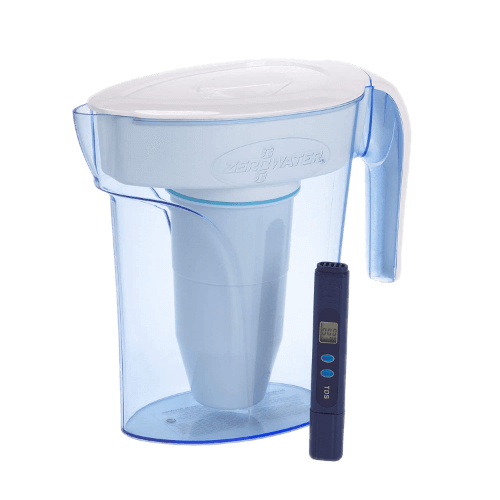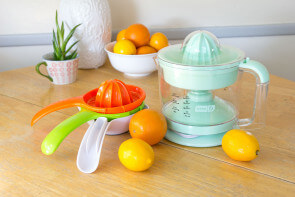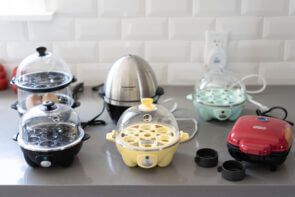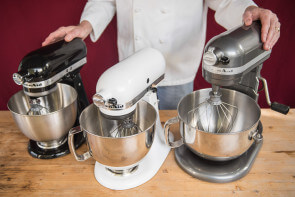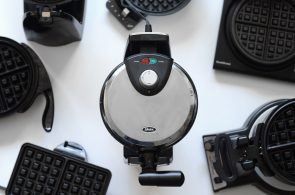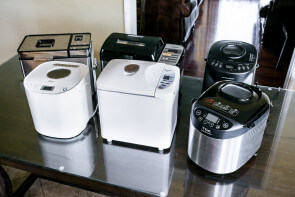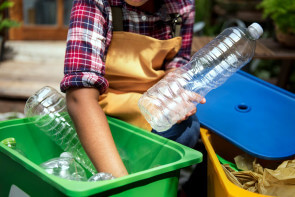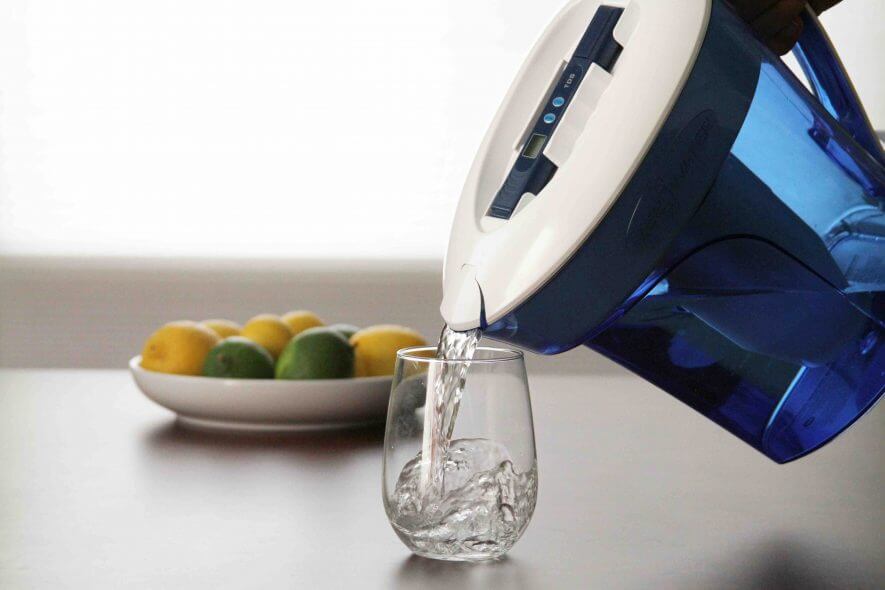
ZeroWater Review: Can Zero be a Hero?
After three years of testing water filters in our office and homes, we’re confident that the ZeroWater – 6-Cup Pitcher is the best water filter pitcher for getting truly pure water. For those who don’t want to go through the hassle and expense of installing a reverse-osmosis system in their kitchen, ZeroWater filters are the next best thing.
During our testing, we found that ZeroWater filters differ from every other filter on the market. Unlike filters from brands like Brita and PUR, ZeroWater filters actually deionize the water, leaving it almost completely devoid of inorganic matter, including heavy metals like lead and chromium.
You can take a look at our full review of the best water filter pitchers here.
Featured Product
Table of contents
- Do you really need a water filter pitcher?
- How ZeroWater filters are different
- What we liked about the ZeroWater pitcher
- How do ZeroWater pitchers compare to others?
- Should you buy a ZeroWater pitcher?
Do you really need a water filter pitcher?
The benefit of filtered water is primarily taste. Even the most harmless particles can add undesirable flavors, so whether you’re drinking water by itself, making coffee or brewing tea a filter pitcher will help.
Water treatment makes sure most of us in the United States have access to clean water. Some people have a private well that they need to monitor themselves, but the vast majority of us rely on a local water authority. Many of those offices will mail a consumer confidence report directly to you, or you can find it through the Environmental Protection Agency database. This shows how close household water is to the goals set by policy-makers. They’ll also report on secondary standards, water-quality factors that affect taste, color and hardness.
When reading a consumer confidence report, if you see a listed contaminant that’s too close to the limit for comfort, you can check for that contaminant on filter ratings before you buy.
Please note: None of the water filters we tested is certified to remove biological contamination. If you get a “boil water advisory” for your area, you should boil your water for one minute (and let it cool) even if you run it through a top-rated filter system to improve the taste.
Chlorine and minerals
The main reason to filter drinking water is that chlorine and chloramine — the disinfectants used in most civic water supplies — taste awful. The amount is low, but you can make most tap water taste better by filtering it. This is all covered in NSF standard 42, which is the most common certification for consumer water filters.
What about lead pipes?
Water in our tester’s city is lead-free at the source, but the consumer confidence report from the local water authority says that over 90% of the homes they tested have old pipes that add trace amounts of lead to tap water. It’s about one third of the allowable level of lead, but well above the public health goal.
This is a similar situation to homes in Flint, Michigan in the decades before the Flint water crisis. Those pipes were also considered safe, until a new water source corroded the protective mineral layer that was keeping the lead under control.
In response to the Flint crisis, lead filtration has become one of the most heavily advertised features of water filters. All of the filtration systems we recommend in our water filter pitcher review are specifically tested to remove lead.
How ZeroWater filters are different
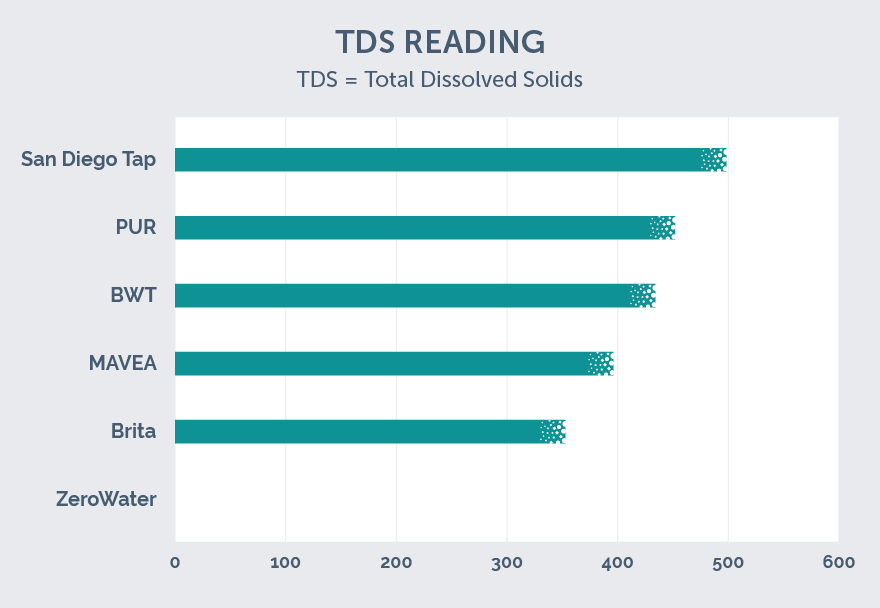
The ZeroWater filter works differently than the other water filters you can buy. When measuring the number of parts per million of dissolved solids — mostly calcium and magnesium ions that cause “hard water” scale — ZeroWater is 100% effective, where most other filters are barely effective at all.
For the most part, conventional water filter pitchers use activated carbon, which adsorbs contaminants like chlorine and organic particles. The smaller the paths through the filter and the longer the water is in contact, the more a filter can trap. Dense carbon-block filters like those we tested in our faucet water filter review can even catch elusive volatile organic molecules like chloroform, but they require pressure to force water through the tiny pores.
ZeroWater is different because it uses a large amount of ion-exchange resin to attract mineral ions. This type of filter is used in pharmaceutical manufacturing and other industries that require 100% pure water.
ZeroWater filters also include an activated-carbon stage that removes chlorine, so unless you have a specific concern about contaminants like pesticide, it’s the best of both worlds. ZeroWater is also specifically certified for removing hydrogen sulfide “sour gas,” which can be a problem in well water.
What we liked about the ZeroWater pitcher
There were a lot of things we really liked about the ZeroWater filter. For starters, ZeroWater is so confident in their ability to remove all dissolved solids that they include a total dissolved solids (TDS) meter with the pitcher itself. And yes, it does read “000” for the entire useful life of the filter.
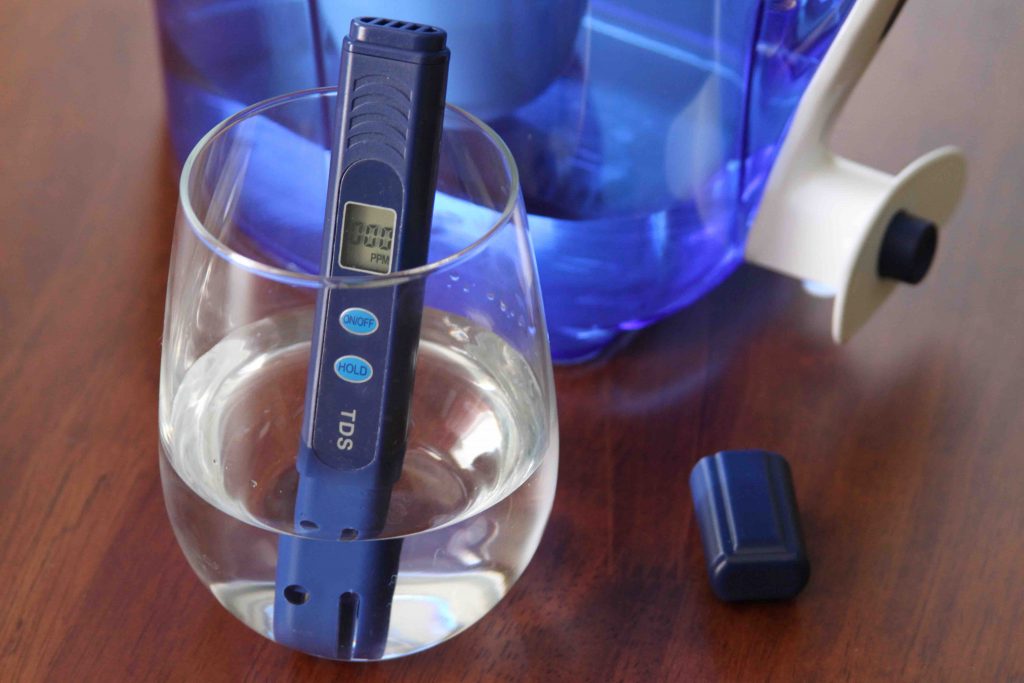
We also like the fact that the filters don’t need to be presoaked before they are ready to go — a notable advantage over several of the other leading brands.
ZeroWater also helps reduce the environmental impact of their filters by offing a recycling and rebate program. Doug Kallam, the CEO of ZeroWater, told us that the filters are able to be completely recycled and recharged, which means essentially nothing ends up in a landfill.
In addition to processing the recycling of their filters, ZeroWater also offers a $10 rebate coupon for every two filters that are mailed back to them. This is primarily to offset the cost of shipping; however there should be a few dollars leftover to help buy your next batch of filters too.
ZeroWater also occasionally offers discounts to their customers, so make sure to subscribe to their mailing list if you’re interested in getting a better price on your ZeroWater filters.
ZeroWater’s place in the market
While conducting our research to determine the best overall water filter pitcher on the market, we had an in-depth conversation with Doug Kallam about his goals for ZeroWater. He explained to us that the company is by no means the largest company in the water filter market, nor do they wish to be.
Doug explained that the water filters used by ZeroWater are more complex and, by their very nature, more expensive to produce than water filters from other brands. He explained that ZeroWater’s goal is to provide the best quality water for the sub-segment of the market whose biggest priority is water quality and not cost or speed of filtration.
In that sense, ZeroWater has been successful, and is the second-largest pour-through water filter brand in the market, behind only Brita.
How long do ZeroWater filters last
One downside to the ZeroWater filter is the fact that, because it filters water so effectively, the filters themselves can be used up more quickly than other filters — further increasing the cost to use ZeroWater filters.
ZeroWater filters are rated to remove 18,000 milligrams of dissolved solids before needing to be replaced. This means that the quantity of dissolved solids in your local tap water will have a dramatic impact on the amount of water that can be filtered.
According to ZeroWater, most consumers in the United States will be able to filter between 25 to 40 gallons of water per filter, assuming that the total dissolved solids (TDS) in their tap water falls between the typical range of 51-200.
ZeroWater also says that municipalities that have particularly high TDS — specifically 500 or higher — will get less than 8 gallons of useful life out of their system.
We tested our ZeroWater filter in two regions of Southern California. In San Diego County, which had a typical tap water TDS reading right around 480, we were actually able to get between 15 and 20 gallons per filter. In Orange County, we saw water hardness of 380, and got between 20 and 25 gallons.
Our estimate is that if you’ve got water with more than 400 parts per million, you will likely find it more affordable and convenient to purchase water (in bulk, not individual bottles) than to potentially buy a new $10 filter every week.
How do ZeroWater pitchers compare to others?
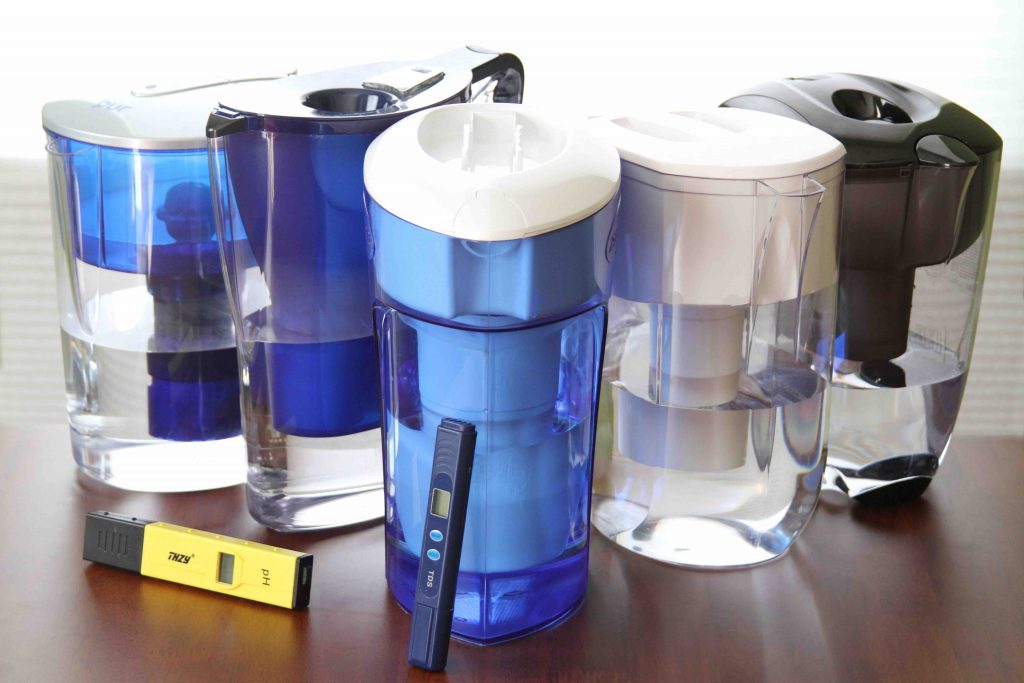
Overall, the ZeroWater – 6-Cup Pitcher compares very favorably when compared to other water filters on the market. While you will pay more for each cup of water, the quality is simply unparalleled.
| Product | Seconds to Filter 1 Cup | Minerals Remaining (Starting 500 PPM): | Filter Cost per Gallon | Removes Lead |
|---|---|---|---|---|
| Brita – Longlast | 188 | 300 | $0.09 | Yes |
| ZeroWater | 110 | 0 | $0.33 | Yes |
| PUR – Lead Reduction | 230 | 450 | $0.18 | Yes |
| Clearly FIltered | 730 | 400 | $0.46 | Yes |
| Brita – Standard | 40 | 350 | $0.10 | No |
| Waterdrop | 49 | 122 | $0.05 | No |
| Epic Pure | 223 | 141 | $0.24 | Yes |
| Aquagear | 85 | 205 | $0.37 | No |
| BWT (Discontinued) | 45 | 425 | $0.15 | No |
ZeroWater vs Brita
In our testing, ZeroWater clearly beat the standard Brita filter, which doesn’t even remove lead. However, there is a reason that Brita has the lion’s share of the water filter market. Brita offers one of the least expensive filters that also happens to be one of the fastest to filter water, and it removes chlorine very well. If you’re looking for a simple, inexpensive way to filter out chlorine, the standard Brita filter is still worth considering.
Then there’s the new Brita – Longlast Filter. It’s certified to remove lead, along with some pesticides and pharmaceutical compounds, and lasts for 120 gallons — that could be 10 times longer than a ZeroWater filter, depending on how hard your water is. The new Brita takes longer to filter, and it doesn’t remove minerals to give you the ultra-pure taste some of our testers loved, but it’s the best value and the most convenient to use.
ZeroWater vs PUR
We were surprisingly disappointed by the PUR water filter during our testing. Water filtered through the PUR filters took longer than the other filters we tested, and the taste of the water was unpopular overall. While a few testers like the way PUR water tastes, most preferred either the unchanged mineral flavor of Brita or the no-mineral taste of ZeroWater.
Should you buy a ZeroWater pitcher?
Even the CEO of ZeroWater admits that ZeroWater is not for everyone. However, if you want water that is as free from contaminants as possible, and you’re willing to pay a slight premium to do so, the ZeroWater 10-Cup Pitcher is a fantastic option.
After running three different blind and unbiased taste tests, we found that anyone who was accustomed to the taste of Dasani, Aquafina or other reverse-osmosis-treated water picked the ZeroWater sample as their favorite. It’s the most distinct water we’ve tested, and for some people the price of filters will be a bargain.
To learn more about the different ZeroWater filters, take a look at our full review of the best water filter pitchers on the market.
More Reviews
Dash - JB065AQ
The 8 Best Electric Egg Cookers
Elite Gourmet - EGC-007B
BELLA - 13591 Classic Belgian
ZeroWater vs. Brita vs. PUR: Who Wins?
Brita - Monterey with Longlast
The Best Digital Meat Thermometers
Lavatools - Javelin PRO
Martha & Marley Spoon
Zojirushi - BB-PAC20
Lucky Jerky
Blue Apron


